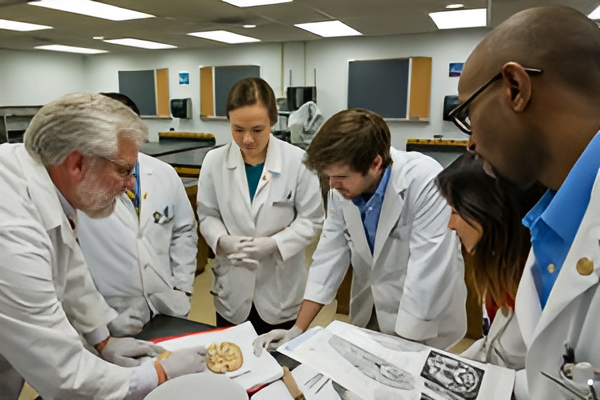MD/PhD Program
Students earning a PhD in biomedical engineering through the MD/PhD program will begin PhD training in the third year of graduate school after two years of medical school training.
MD/PhD students begin by applying directly to the University of Rochester School of Medicine and Dentistry MD program. Learn more about the School of Medicine and Dentistry's admissions process and requirements.
After completing the first two years of the MD curriculum, students identify a PhD advisor. Once an advisor is confirmed, students are automatically transitioned into the PhD portion of the program—no separate graduate application is required. After completing the PhD, students return to the MD program to finish their remaining medical school requirements.

